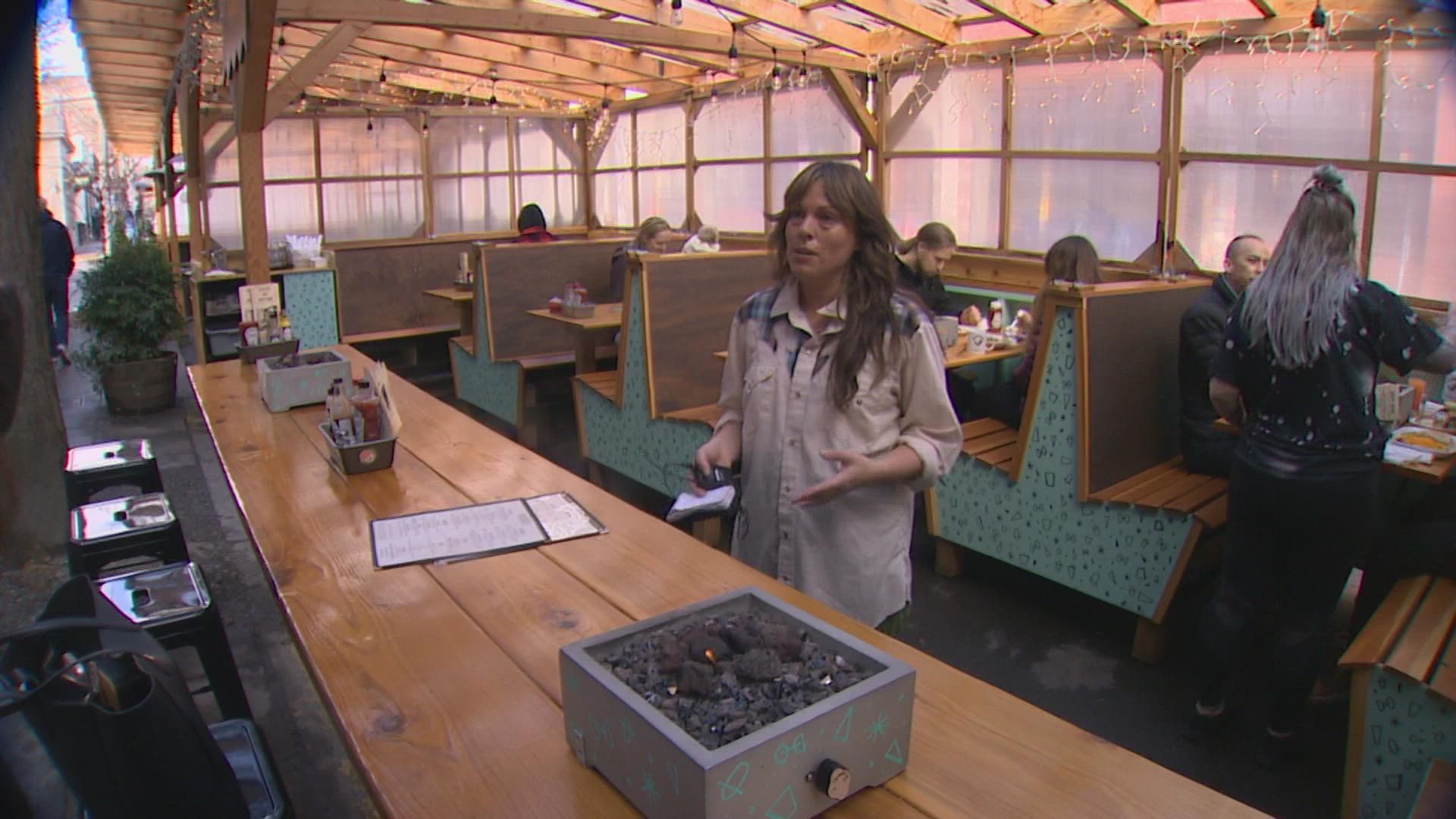SEATTLE — The Seattle City Council voted to extend its free street dining permit program through Jan. 31, 2023 on Tuesday.
The program, which enables restaurants and other storefronts to use streets outside their businesses for dining and displays, passed with an 8-0 vote.
The program would have expired in May.
“This is another meaningful step along the pathway to permanence I created last year after hearing from many small businesses about the success of café streets,” said legislation sponsor Councilmember Dan Strauss. “We will ensure that these free permits continue to be available until the City Council, Seattle Department of Transportation, and Mayor Harrell establish permanent guidelines that are right-sized and meet the needs of our city.”
Outdoor dining has delivered some financial relief during the pandemic for restaurants like Hattie's Hat in Seattle's Ballard neighborhood, according to manager Kate Sweeney.
"People are still more comfortable eating outside," Sweeney said.
The outdoor dining option became more feasible in September of 2020 when the Seattle City Council passed an ordinance that amended the Street Use Permit Fee Schedule, authorizing a new free permit for temporary business uses during the COVID-19 recovery. It allowed for "cafes, displays, and vending activities in the right-of-way through Phase 4 of the Governor's Safe Start Plan."
Along Ballard Avenue NW near Vernon Place, streateries now line both sides of the street.
Matt Dillon, manager at Paxti's Pizza, said the street space is paying off.
"We can get seven or eight tables out here," Dillon said.
Staying open has been a challenge for restaurants statewide. The Washington Hospitality Association recently released findings that show the restaurant industry's total loss in a full year of the pandemic was more than $5 billion in year-over-year sales. By the association's count, more than 3,000 restaurants in the state have closed in the last two years.
Sweeney credits curbside dining for helping keep the restaurant where she works afloat.
"We wouldn't have been able to keep our business open without it," Sweeney said.

